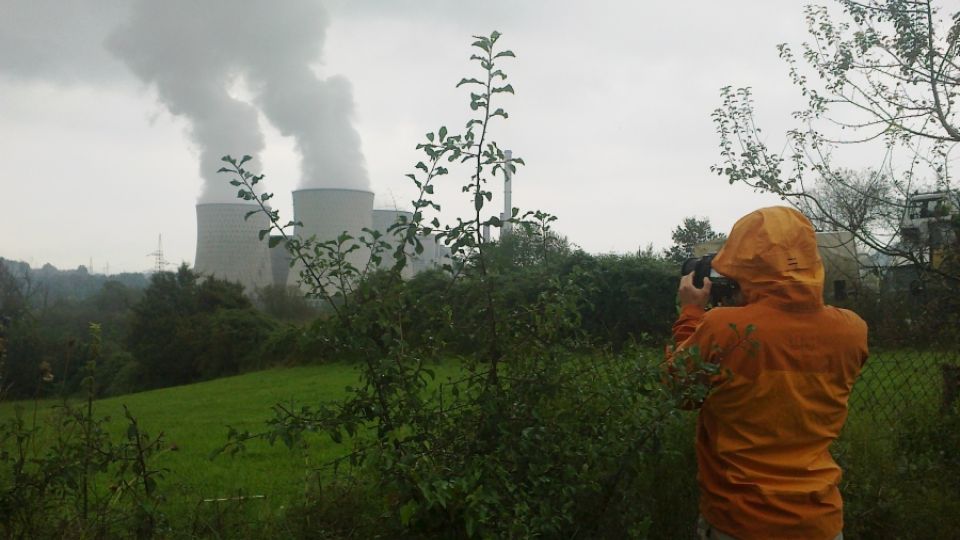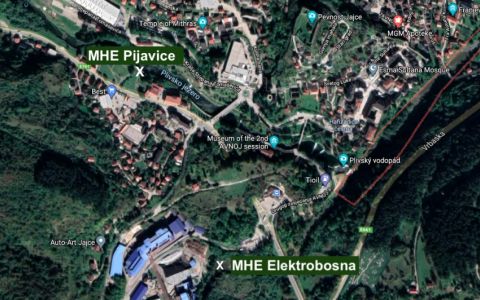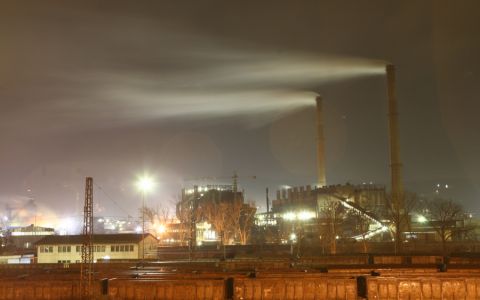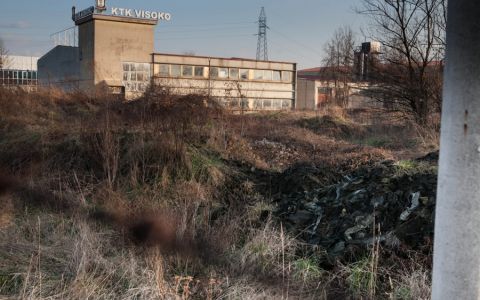Modern history of Tuzla is tightly connected with unmissable presence of local coal power plant the biggest one in the country. The Tuzla Thermal Power Plant, with capacity of 715 MW, has been gradually built between 1959 and 1978 and towns of Tuzla and Lukavac are dependent not only on its electricity, but also heating. The giant, consuming from 3 to 4 million tons of lignite annually, is surprisingly not equipped by desulphurisation filters. Thus, 50 million tons of sulphur dioxide and tens of tons of dust are released into the atmosphere annually. In 2013, people finally lost their patience and started to fight for a more civilized energy production.
Tuzla power plant belongs to the state-owned company Elektroprivreda and the government should not earn money by poisoning its citizens. The city´s population suffering from respiratory diseases and cancer is more than Bosnian average. According to the report of Centre for Ecology and Energy, estimated reduction of life expectancy per person in Tuzla reaches 3.2 years, and the power plant is linked with to 4,918 惣ears of life lost across Europe each year. Industry captains came to the conclusion it is still not enough. In 2013, Elektroprivreda reconstructed Block unit 6 – replacement of electrical filters was supposed to reduce emission of the dust particles and prolong service life of all factory for 15 years. In the same year, the company announced the plan to construct new production unit 7 with 450 MV of capacity for BAM1.6 billion (cca 0.8 billion euro).
Citizens in the streets
The citizens eventually lost their patience and organized a protest meeting at the gate of the power plant. They demanded more investments to the technologies to reduce air pollution, to the infrastructure of neglected town and also to improvement of living conditions in general. As the company was not able to meaningfully explain reasons for construction of a new production unit, people rejected the project and demanded its administrative termination. It became clear that there is no need for more energy in the country, and the company only wants to get more income by increasing export. More than 5 thousand people signed the petition containing these demands.
Poisonous defaulters
Dispute between Elektroprivreda and Tuzla Canton started 12 years ago over compensation payments for air pollution, set by cantonal law. The energy company was obliged to pay BAM 150 thousand every month for its power plant emissions since 2002, but it did not. In 2006, the case got the court. It decided in 2009 in favour of the canton and ordered the power plant to pay total debt of BAM 7 million (3.5 million euro). The same situation – debts on compensation payments for pollution, indifference of the company, and the ligation – repeated again in 2014, the year of mass public protests against pollution. That time, the debt amounted already 14 million BAM (7 million euro). Tuzla Canton left the courtroom as the winner for the second time. Money collected from industrial polluters end up in the cantonal budget, from which they are distributed to the municipalities for their infrastructural and public welfare projects. Thus, dirty industries contribute at least somehow to poor public budgets.
The case got large publicity in mass-media, and joint eff ort of the citizens and the canton resulted in debates on the fl oor or parliament. Its members started to review entire system of payments for pollution. In summer 2014, parliament adopted new law on compensation fees. Due to political unrests in 2014, production unit 7 is still not built. Moreover, Hitachi decided to pull out the investment and nowadays, consortium of Chinese companies is the sole bidder for the project. Its completion remains a question.
________________________________________
Local non-governmental organization produced comprehensive report that calculated real costs of energy production. Shocking fi gures on damage to the environment and public health encouraged citizens to mass protests. Cantonal representation was active and sued the energy company for not paying enough for emitted pollution. The case became one of major reasons for adopting new law on compensation fees by the parliament.
________________________________________
"People grown in socialism are not used to fight for their rights. Also we have got the government used from the previous system that citizens are passives. At the third side stands the industry, happily get used to apathetic authorities and timid public. They are absolutely indiff erent to what the people think or say about them. So they keep exhaling to the air anyway, without bearing responsibility. But the situation gradually changes. The people are beginning to understand that they have right to demand healthy environment for them and their children."
Džemila Agić, Centre for Ecology and Energy Tuzla







